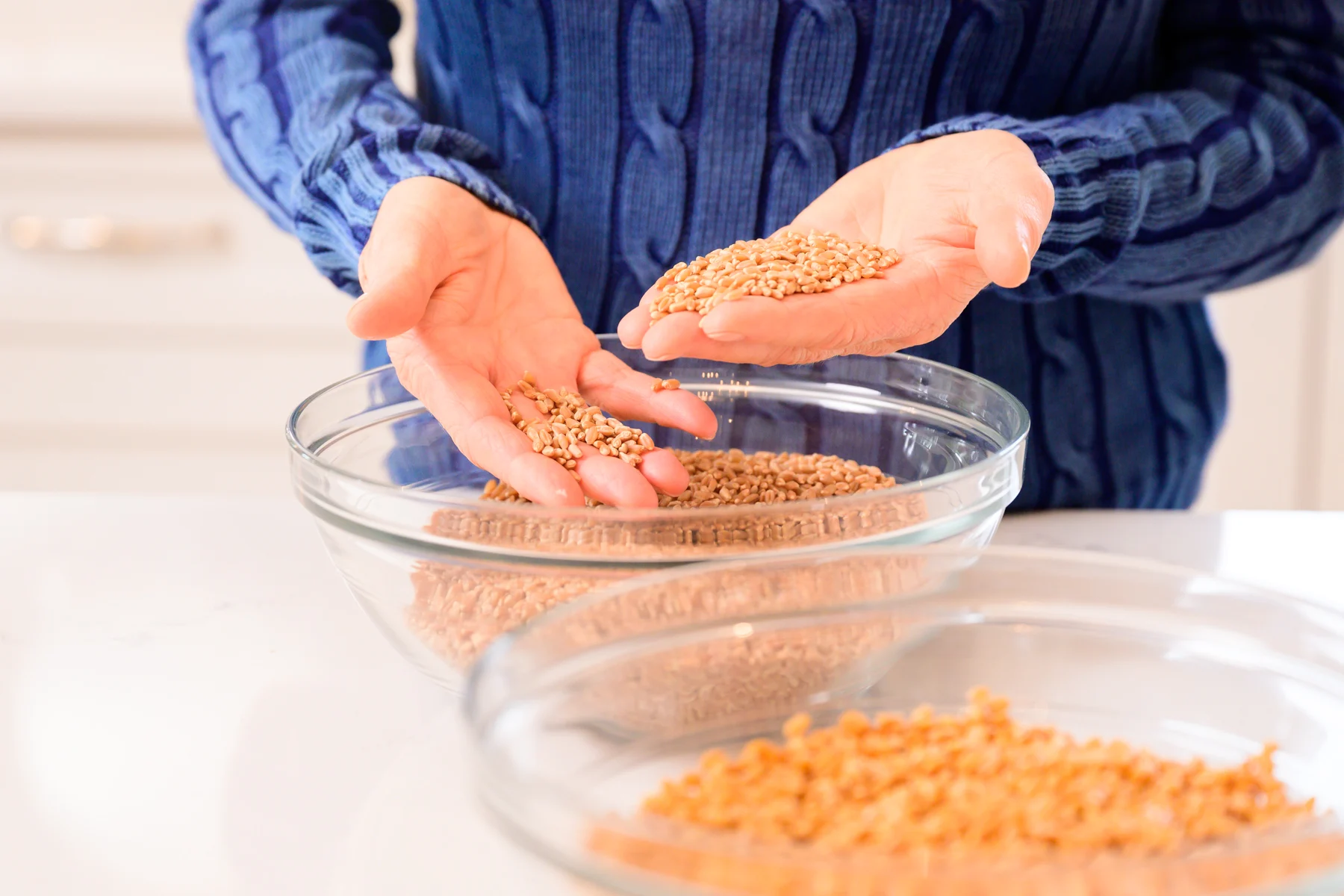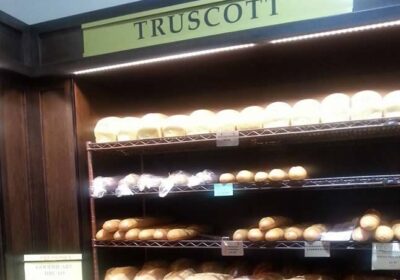Our Story:
About Silver Hills Bakery
We believe investing in your own health is the greatest gift you can give someone because when you’re healthy, you’ll have more to share.
So, with a mission to empower people by providing healthy choices, we opened Silver Hills Bakery.
And we’ve been living that mission as a family-owned, family-run bakery with wholesomely sprouted products proudly made in Canada since 1989.
Crafting foods with care and purpose from sprouted grains and a simple list of ingredients, we aim share the nutrient-dense power of sprouted foods far and wide.
We’re committed to making the best tasting, most nourishing plant-powerful products possible. And our devotion is our promise. Everything we put in, you get out—so you can count on the authenticity and goodness of our healthy, 100% plant-based sprouted breads, buns, and bagels.
Made with nutrient-dense, high-fibre whole grains sprouted in clean, cold, Canadian water at our Abbotsford, BC bakery, every ingredient we use is guaranteed non-GMO—the way food is meant to be.
Because by caring for one another and the planet, we create a truly healthy world.
Who We Are, What We Stand For,
and Why We Do What We Do
Get to know us better! Meet Silver Hills Bakery co-founders Stan and Kathy Smith and learn more about our purpose, our passion for sprouting, our health values, our commitment to food and quality, and our family business story.
Our Stand on GMOs
What’s the deal with GMOs?
Before we can talk about being non-GMO, we first need to define what GMOs are.
GMOs—genetically modified organisms—are plants and animal species created through gene splicing or biotechnology, also referred to as genetic engineering (GE).
(This is not the same as crossbreeding, where related species are cross-pollinated over generations to create a hybrid with desired traits. Hybrids happen in nature or are helped by a farmer’s hand—GMOs are created in a lab).
In the plant world, most GMOs are created to withstand pesticide applications or extreme temperature ranges (such as drought). Improved nutrition or higher crop yields are the intended outcomes.
Proponents of the GMO movement maintain that GMO crops are safe to eat, more nutritious, strictly regulated, environmentally beneficial, and an aid in addressing world hunger.
The truth? In many cases, GMO crops have demonstrated the opposite effect—and instead have raised many questions about consumer and environmental safety.
Add to that fact: here in Canada and the US, governments have approved GMOs for use based primarily on studies conducted by the very companies that created the GMOs and will profit from their ongoing sale and distribution.
After years of being told, “There is nothing to worry about,” consumers are becoming more educated about GMOs, and the potentially negative impact they could have on both our health and our environment.
GMOs in the Food Chain
There are a number of crop strains that have, at some point, been bio-engineered and therefore are deemed to be at risk of being GMO:
Alfalfa
Canola
Corn
Cotton
Flax
Papaya
Rice
Soy
Sugar Beets
Yellow Summer Squash
Zucchini
Ingredients derived from these GMO-risk crops are often used in the bread-making industry—including amino acids, citric acid, flavourings, sugar, sucrose, vegetable oil, vitamins, and yeast products.
Animal byproducts such as milk, meat, eggs, honey and other bee products are at risk as well, due to potential contamination from feed and other input factors.
Since GMO wheat has never been approved for testing or sale in North America, it was not originally a crop considered to be at risk. This changed with the discovery of GMO wheat in an Oregon field in May 2013.
The incident raised serious questions about the safety and validity of GMO experimentation performed in an uncontrolled environment—outside.
Now out in the open, genetic engineers and research scientists can no longer guarantee experimental GMO grains will not contaminate non-GMO crops through drift or wild cross-pollination by insects or animals.
The Non-GMO Movement
As consumer mistrust in the corporations engineering GMOs—and marketing terminator seeds and the patented pesticides and herbicides they manufacture to go with them—grows, the non-GMO movement is gaining momentum.
Consumers now demand transparency. They want to be informed about the presence of GMOs in their food, and in the food chain. And they’ve increased pressure on their governments to be more responsive to the numerous issues associated with GMOs.
In many cases, consumers have specifically asked that GMOs not be used in food products, and if they are, that mandatory labelling be imposed.
While more than 50 countries have banned GMOs, North American governments have been slow to respond.
Features:
- Breads
- Bagels
- Buns
Business Hours
| Open | Close | ||
|---|---|---|---|
| Monday | 9:00 am | – | 6:00 pm |
| Tuesday | 9:00 am | – | 6:00 pm |
| Wednesday | 9:00 am | – | 6:00 pm |
| Thursday | 9:00 am | – | 6:00 pm |
| Friday | Closed Today | ||
| Saturday | Closed | ||
| Sunday | Closed | ||








Leave feedback about this
You must be logged in to post a review.